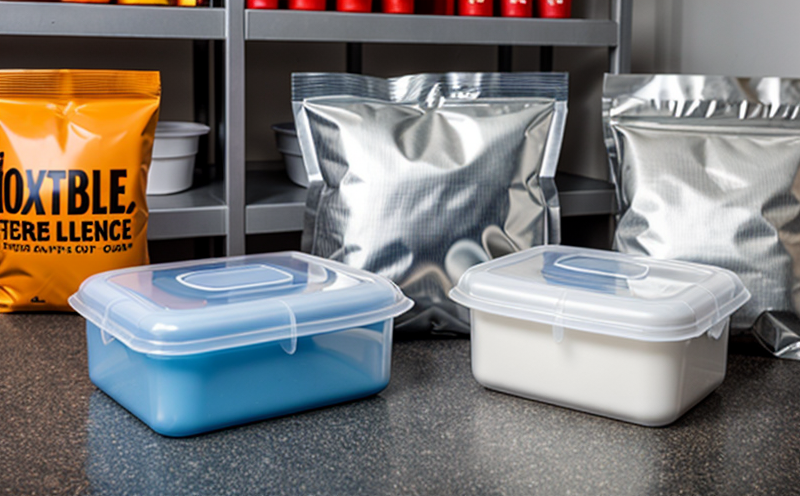ISO 527-3 Tensile Testing of Plastic Films
The ISO 527-3 standard is a fundamental protocol in the field of packaging testing, particularly for assessing the mechanical properties of plastic films. This test evaluates the tensile strength and elongation at break of these materials under controlled conditions.
Understanding the physical characteristics of flexible packaging is crucial for ensuring its performance, safety, and reliability throughout various stages of use, from production to end-user consumption. The ISO 527-3 standard provides a standardized approach to measuring tensile strength and elongation at break, which are critical parameters in assessing the quality and durability of plastic films used in packaging.
The test involves stretching a sample of the film until it breaks, recording both the force required for this and the extension before failure. The results provide essential information on how the material will perform under stress during use. This can help predict potential issues such as tear propagation or deformation, ensuring that the packaging meets safety regulations and performs effectively in real-world conditions.
For quality managers and compliance officers, understanding these parameters is vital for maintaining product consistency and ensuring adherence to international standards. In R&D environments, this test supports innovation by providing data on how different materials behave under stress, helping engineers design more effective packaging solutions. For procurement teams, it ensures that the chosen suppliers meet stringent quality criteria.
The ISO 527-3 standard is widely recognized and used globally, ensuring consistency in testing methods across industries. This standardization is particularly beneficial for companies operating in multiple countries or regions where regulatory requirements can vary significantly. By adhering to this standard, organizations demonstrate their commitment to quality and compliance.
Proper specimen preparation is critical for accurate results. Samples are typically cut from the film according to specific dimensions outlined in the ISO 527-3 protocol. This ensures that all samples are comparable and representative of the material's properties. The testing machine used must be capable of applying a controlled, continuous force while measuring both tension and elongation.
Real-world applications of this test include determining the suitability of plastic films for specific packaging uses such as food wrapping or medical device packaging. In these contexts, understanding how the material will behave under stress is crucial to prevent failures that could lead to contamination or malfunction.
Eurolab Advantages
EuroLab offers a comprehensive suite of services tailored specifically for ISO 527-3 tensile testing. Our state-of-the-art facilities are equipped with the latest in testing equipment, ensuring accurate and reliable results that meet international standards.
- Comprehensive specimen preparation support
- Access to high-quality testing machines
- Experienced technicians who understand the nuances of ISO 527-3
- Fast turnaround times for results
- Compliance with all relevant international standards
Our team works closely with clients to ensure that every aspect of their testing needs is met, from initial consultation through final analysis. This collaborative approach ensures that our customers receive the most accurate and actionable data possible.
Competitive Advantage and Market Impact
EuroLab's expertise in ISO 527-3 tensile testing provides a significant competitive advantage for businesses operating in the packaging industry. By ensuring that all materials used meet stringent quality standards, companies can enhance their reputation as reliable suppliers of high-quality products.
Accurate and consistent test results help manufacturers maintain product consistency, which is essential for building brand loyalty among consumers. For those in regulatory compliance, adherence to international standards demonstrates a commitment to safety and quality, fostering trust with customers.
Innovation within the packaging sector benefits greatly from precise testing data provided by EuroLab. R&D teams can use this information to develop new materials or improve existing ones, leading to more efficient processes and products that better meet consumer needs. This competitive edge allows businesses to stay ahead of market trends and maintain their position in a rapidly evolving industry.
Use Cases and Application Examples
- Determining the suitability of plastic films for food packaging
- Evaluating medical device packaging materials for robustness
- Assessing environmental factors affecting flexible packaging performance
- Comparing different types of plastic films to identify optimal material choices
- Monitoring the quality control processes during production
- Identifying potential areas for improvement in existing packaging designs





